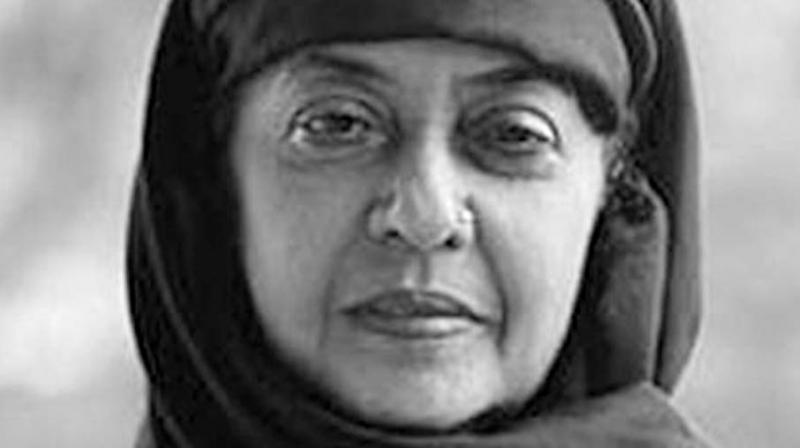In search of one's own Aami

The Aami I recreated in my film is the outcome of my reading of Kamala Das. This was after going through her writings and collecting information on Madhavikutty from her close circle and family members. I saw a Madhavikutty different from her writings which I depicted in my movie, Aami. There may be differences on opinion and anybody can have their own versions of Madhavikutty.
Madhavikutty is a ‘cult’ and there should be different opinions popping up, of course. However, nobody has the right to say my Aami should not be like this. Those who say ‘this is not like Madhavikutty’ should then tell in their own version ‘how Madhavikutty was’. This is like searching for the character of authors from their creations. In my movie I find Madhavikutty has declared her freedom in her own way, which is her own politics.
The movie has critics galore. Apparently they attempted and failed to find their Aami, whom they are familiar through her writings. But there was another persona of Aami, outside the world of words. The real Kamala was not the character portrayed in her writings, but a real woman who lived outside. A character in the movie, who imitates Aami, is told that her writing is her imagination, not the real life. Search for sublime in Krishna: In portraying the 75-year sojourn of writer Kamala Das on 155-minute celluloid, Kamal has cherry-picked poignant vignettes of her fact-fantasy world, putatively the princess of love. Kamala’s search for the sublime in Lord Krishna surpasses.
The opening scene in Calcutta when Aami (Manju Warrier) declares she will write ‘with the blood of her own heart’ after watching a bird crashing against the windowpane and falling dead sets the prelude to the agony deep inside the heart of Kamala. The director lends a mystic touch to the movie with the portrayal of Lord Krishna (Tovino Thomas). The ideal lover, Lord Krishna, does not grow old, as ethereal as love. Aami’s sentiment was one of unfathomable love rather than a sense of respect or piety towards the Lord.
A young Aami's intolerant of the obnoxious caste is brought out by her interactions with Valli, a servant at the manor. Her mother, who forgot to even caress her, as she puts it, taught her to be ‘human’. Aami’s struggle as a wife starts the very first night when she is subjected to an apparent marital rape. Aami, who longed for tenderness from her partner, Madhava Das, 20 years older, tries to conform to his expectations even when he engages a prostitute to brief her on how to “behave” in bed.
Kamal has handled well the sensitive issue of her religious conversion, portraying social discontent towards her though she enjoyed her sons’ support. Aami gives a damn to the Muslim clergy, who tried to “guide” her on “what” to write after the conversion. The essence of religion – the love for God – is exquisitely stated by Kamal through the character Krishna as he tells Aami that ‘if she could find the same Krishna in Gita and in Quran, Krishna was still with her’. In the end, the princess of love is like a wild elephant lonely deep inside the forest, awaiting death alone. That was in Pune, all alone. Aami finally lends a touch of regret; should have strived to be a “lesser poet” and “better woman”.
Manju Warrier emotes the character, even displaying Aami’s mannerisms, including her bursts of laugh. A slight difference of opinion may exist in the case of Manju’s makeover as Aami that has seemingly misplaced the charm of the actor and the writer. Performances of other actors are excellent, that of Murali and Tovino exceptional. Anoop is restrained, does justice to the latecomer lover.

